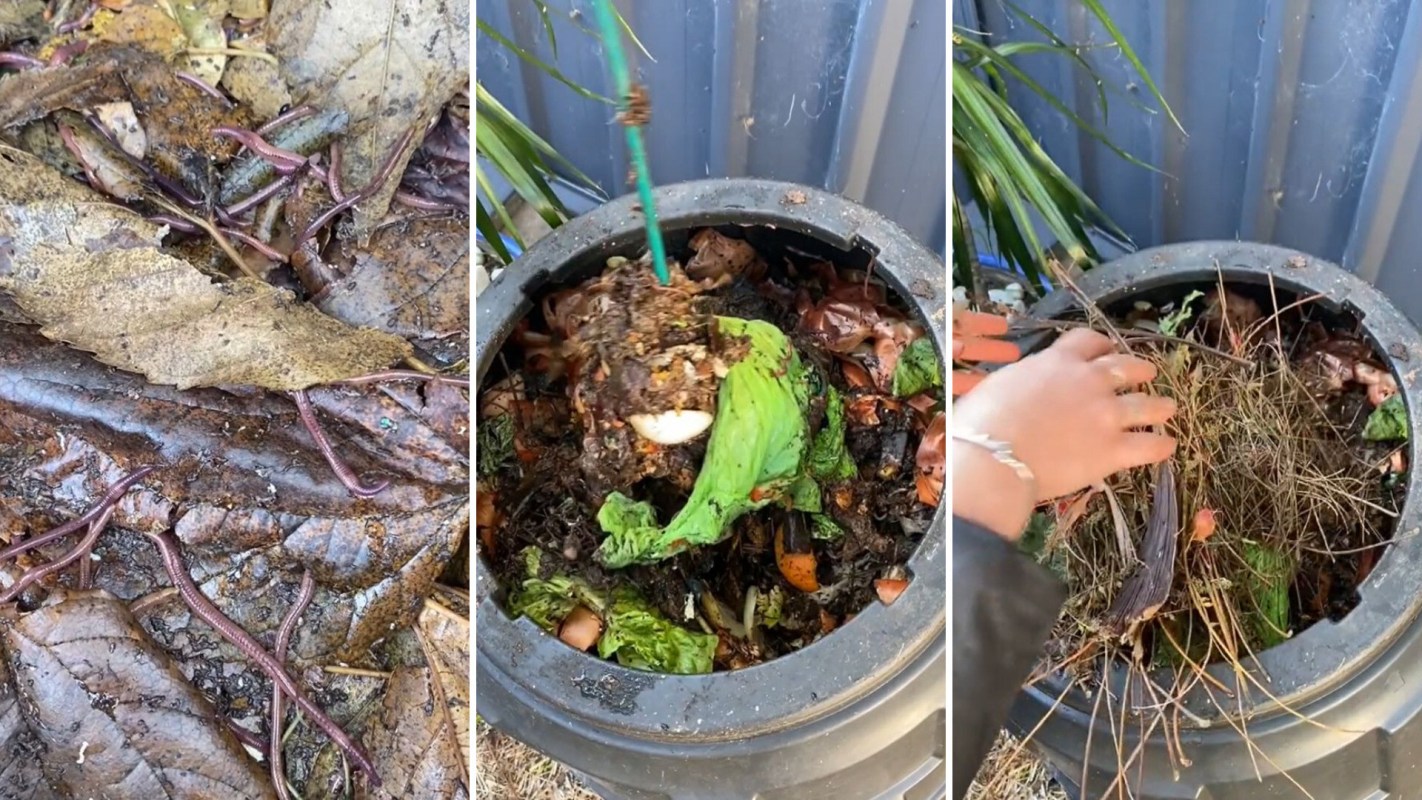Composting is great for your soil and can help reduce food waste, but it can also get, well, stinky.
That's one potential problem you can encounter with your own heap, as TikToker Little Pepino (@littlepepino) pointed out in a post.
The scoop
The 34-second post from June 2022 drew a bevy of comments and discussions about the state of users' compost bins, but the crux of the argument was that compost shouldn't smell funky. If it does, however, you can troubleshoot and fix the issue.
Little Pepino showed off their bin, which included lettuce, yard waste, and worms.
"Did you know that if your compost bin smells, it's actually a sign that something's going wrong inside your bin?" they said. "A healthy compost bin actually has no smell whatsoever. So, if your bin smells, it's probably … too wet, there's been too little aeration, or you've added in too much food waste."
@littlepepino Stop the stank 👃 #compost #composting #gardentiktok #smelly ♬ LIMITS THE SKY - Mpax
How it's helping
Composting can be a lot of work, and the results may not seem worth the effort until your bin is established.
But the Natural Resources Defense Council said getting started is a breeze. Set up a space, such as a fenced-off area or homemade bin and then toss in "two or three parts carbon-heavy 'browns' for every one part nitrogen-centric 'greens.'"
You can add soil and a little water to help things along. In the summer, you should turn your pile once a week, but the winter requires a turn only every three to four weeks.
"Compost adds nutrients and organic matter back to soil, which benefits agriculture, reduces our reliance on synthetic fertilizers, diverts methane-producing organic materials from landfills, and improves soil's water retention capacity so you don't need to water as much," NRDC senior resource specialist Darby Hoover said.
After a few weeks, composters should get a "soil-like dark matter," according to the NRDC. It's ready when there's "a musty, earthy smell and you can't recognize any of the items you dropped in." You can use it around plants, on your lawn, or mix it with potting soil.
If odor is giving you problems, Little Pepino said there is an easy two-pronged solution: Aerate your compost at least once per week and add lots of browns, such as dried leaves and newspaper, to balance the greens, which can include fruits and vegetables, breads and grains, coffee grounds and filters, and grass clippings.
What everyone's saying
Some commenters said compost, by nature, has an aroma.
One wrote: "It's not necessarily bad! If it smells bad, the composting process is happening faster. but adding browns will help decrease the smell."
The NRDC noted that dairy products and meat and fish scraps can create a stench. But other commenters pointed out that compost shouldn't reek or should only have a fragrance like dirt.
Many still were intrigued, asking how to start a compost pile or about the benefits of having one, and another said: "Keep me on compost tok… I've wanted one of these for ages but my mother is squeamish about the worms."
Join our free newsletter for easy tips to save more, waste less, and help yourself while helping the planet.








